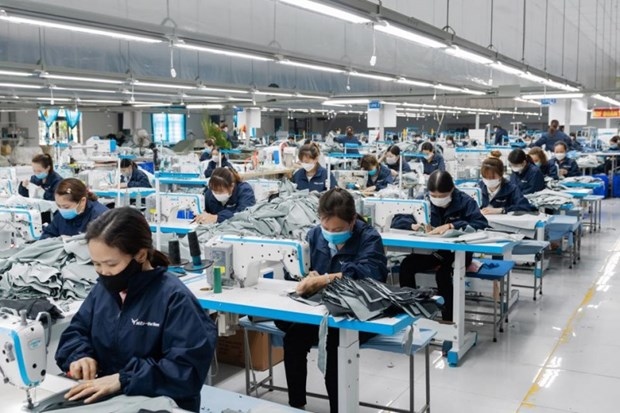Diversifying material sources opens door to sustainable supply chain
Diversifying sources of materials and stepping up digital transformation have been regarded as the key to the building of a smart, sustainable supply chain in the garment-textile sector, insiders said.
Pham Van Viet, General Director of Viet Thang Jean Co., Ltd., said major importers like the US, Europe and Japan prefer supply-chain linkage, which, however, remains weak in Vietnam.
Given this, the domestic garment-textile sector should make greater efforts and take solutions to integrate more intensively and extensively into the global supply chain, he stressed.
Building a sustainable supply chain requires a long-term, well-designed strategy, Viet said, urging Vietnamese enterprises to adopt a long-term mindset in supply chain restructuring and reposition themselves in the market.
Viet pointed out that the cut, make and trim (CMT) manufacturing generates low profits and causes price pressure, forcing firms to shift to the business of freight on board (FOB), original design manufacturer (ODM), or original brand manufacturer (OBM).
Without a long-term mindset and vision, domestic enterprises would not be able to integrate into the global supply chain more deeply, he continued.
To raise their self-reliance in material supplies and reduce their dependence on imports, economist Vu Dinh Anh proposed the State perfect laws and policies on support industries, which, he said, should direct the planning of support industry clusters to attract more foreign investments.
Trade counsellors should play a more active role in seeking and expanding import and export markets, and supporting businesses in technological transfer, thus raising their competitiveness in the global value chain, he said.
In another view, Viet suggested building a design centre in Ho Chi Minh City which makes up more than 40% of the country’s total garment-textile export revenue.
The centre will serve as a playground for designers and apparel enterprisers nationwide, he explained.
The Vietnam Textile and Apparel Association said it will continue raising policy proposals to competent agencies to facilitate the operation of domestic firms, while enhancing coordination with other domestic and foreign organisations in supporting them in terms of both technological and capital.

